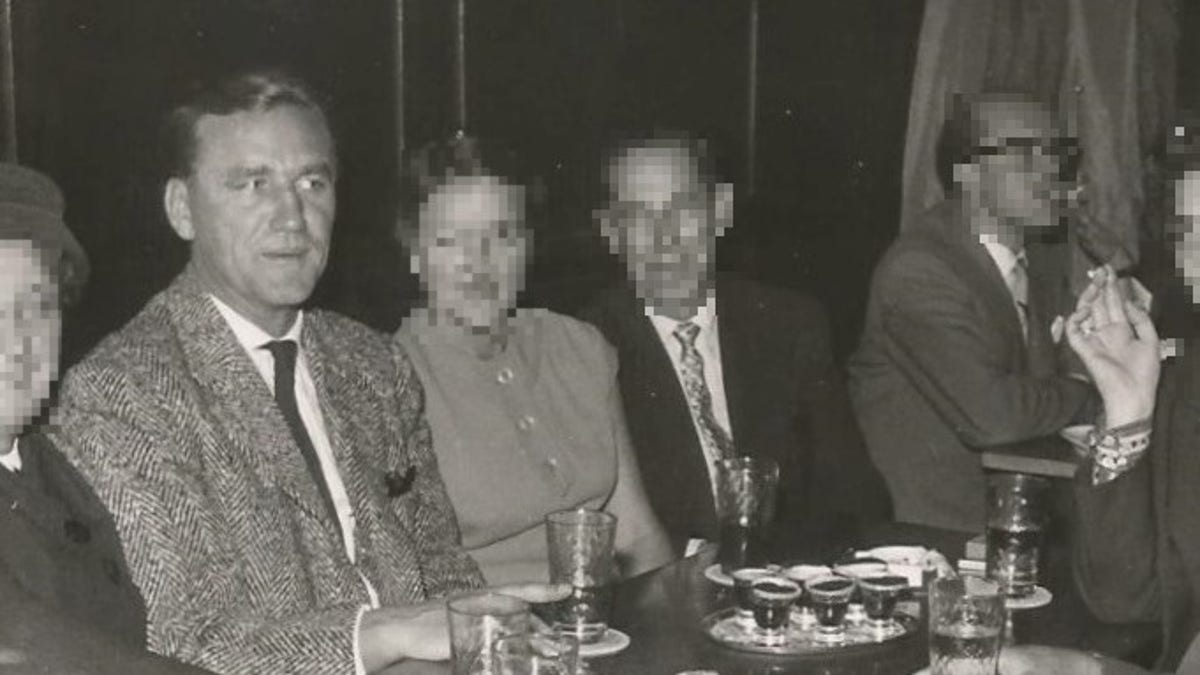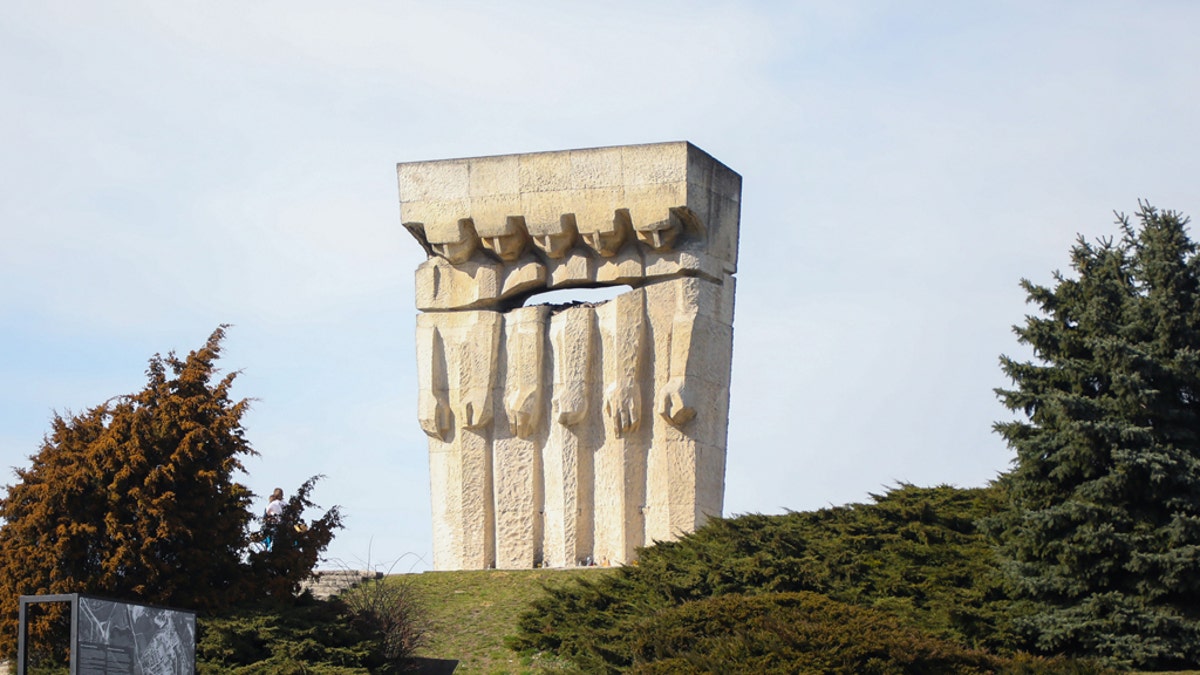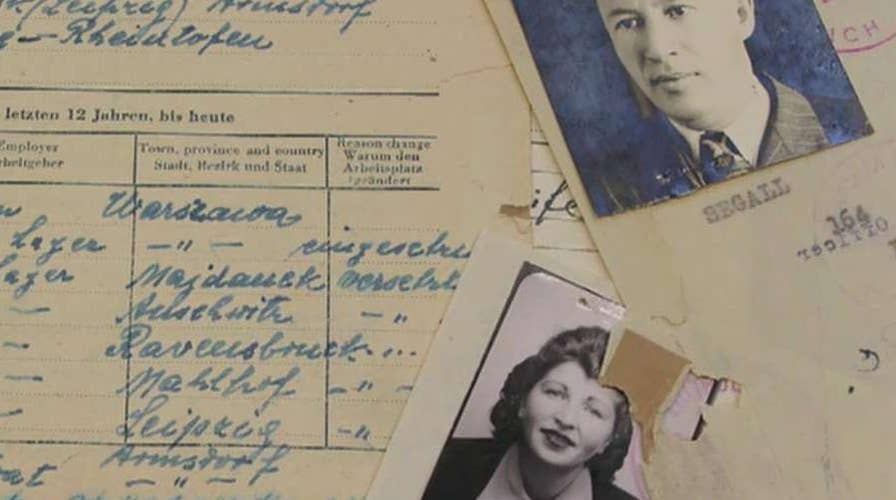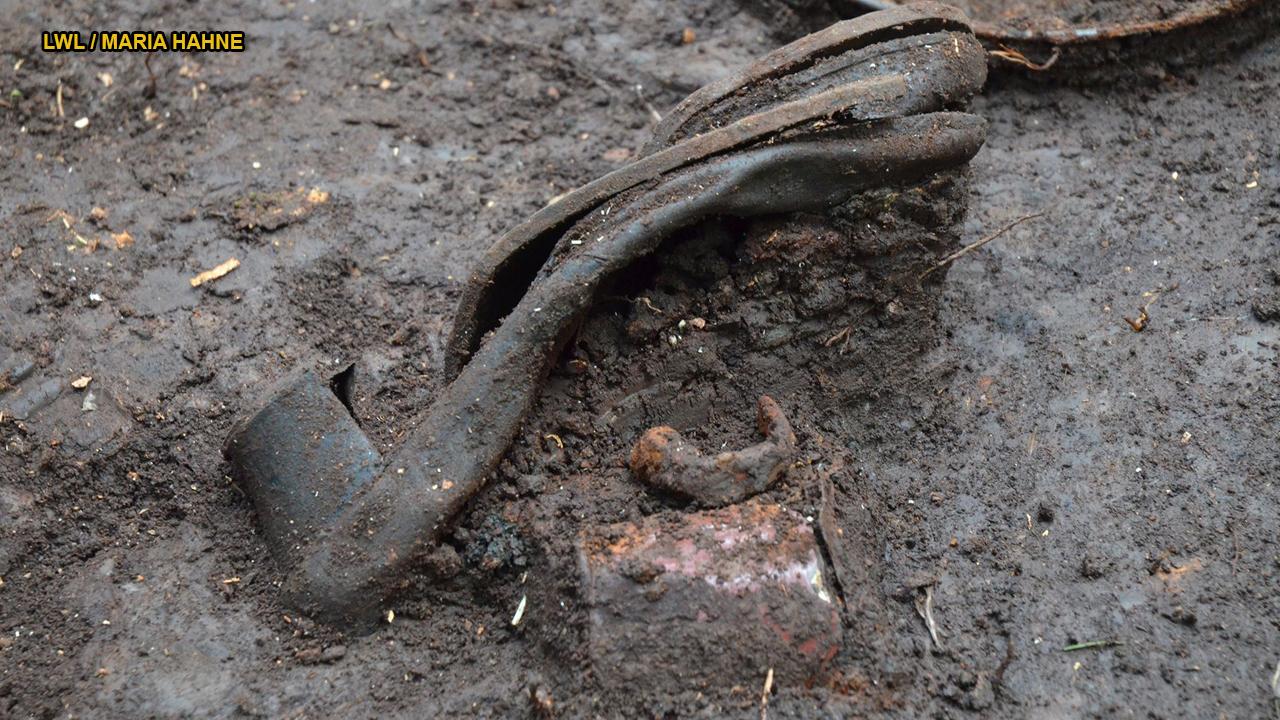German research center makes millions of documents from Nazi concentration camps public
The organization's director says making these documents as accessible as possible is critical with so few Holocaust survivors still living; Laura Ingle reports from New York.
The name Horst is an indelible stain, forever darkening the fabric of Christiane Falge’s childhood memory. It haunts her to this day.
Falge, born in 1970, never met Horst Burkhart, who died five years before her birth, but the image of this playboy relative – her father’s uncle – who drove a sports car and wore expensive clothes is engraved in her mind.
“He owned a Porsche after the war,” Falge said in a telephone interview from her home in Bremen, Germany. “That’s what impressed my father so much. It was this toxic masculinity. Men should be strong, and violent, and have a lot of women.”
Falge, now a professor of social anthropology at Bochum University, recalled that when she was a child, her father, Jochen, told her his uncle Horst, a rich hotel manager, then about 40, would take him for rides, and they would enjoy having drinks together. Women flocked to Burkhart.
That was in the post-war years, when World War II’s devastation was still evident. Such displays of affluence were rare at this time when most Germans struggled to obtain the bare essentials.
From the time of her childhood, Falge always sensed there was some hidden secret that was being concealed. Everyone in her family seemed to know that Burkhart was not Horst’s real surname. It was also understood that no one should reveal that he was Horst Pilarzik, or acknowledge that he was part of their family.

Horst Pilarzik, who appears in the book, was an SS officer responsible for atrocities committed in the Nazi slave labor camp in the Plaszow district of Krakow, Poland, where thousands of Jews died. (Christiane Falge)
SECRET WWII BUNKER THAT BELONGED TO 'CHURCHILL'S SECRET ARMY' DISCOVERED
This secret did not come to light until the publication of the book "Schindler’s List" in 1982, later turned into a movie.
Horst Pilarzik, who appears in the book, was an SS officer responsible for atrocities committed in the slave labor camp in the Plaszow district of Nazi-occupied Krakow, Poland, where thousands of Jews died, most of them shot to death, or were deported to be murdered in extermination camps like Belzec and Auschwitz.
In 1942, Pilarzik supervised the construction of the Plaszow camp, built on two Jewish cemeteries. Workers removed the tombstones and erected barracks on the graves, an intentional desecration. Pilarzik served a short time as camp commandant, replaced by Franz Josef Mueller, who was replaced by SS Commandant Amon Goeth, noted for his sadism.

Memorial of the Victims of Fascism in the former German concentration camp Plaszow.Krakow, Poland on 17 March, 2019. (Photo by Beata Zawrzel/NurPhoto via Getty Images)
Pilarzik was Goeth’s adjutant, or administrative assistant. It was Goeth’s practice to shoot someone each day before breakfast. It was also his practice to shoot 10 prisoners if one tried to escape, and to turn his dogs – Great Danes – on prisoners whose expressions he did not like.
Built as a forced labor camp, Plaszow became a place of mass murder, victims mainly the sick and elderly, with children deported to their deaths at Auschwitz. In March 1943, during the final liquidation of the Krakow Ghetto, 2,000 Jews were killed on the spot, the remainder transported from Plaszow for extermination at Auschwitz.
In his post-war testimony, Oskar Schindler linked Pilarzik to the executions at Plaszow.
Peter Black, former senior historian at the United States Holocaust Museum, said in an interview that Pilarzik bears responsibility for what happened.
“As adjutant to Mueller and Goeth at Plaszow,” said Black, “Pilarzik would have shared responsibility for the management of the camp and for crimes committed at the camp.”
A wanted Nazi killer after the war, Pilarzik concealed his identity until his death in 1965.
Falge, who told her story to the English language version of Deutsche Welle in February, now wants the world to know the truth about her family’s cover-up. She said in an email that by letting the world know the truth, she takes responsibility for their deeds.
“By hiding him, they carried his guilt,” she said. “The family was proud, ignorant as they were, that Horst was mentioned in ‘Schindler’s List.’ There was no shame.”
According to the German government’s official file on Nazis, Pilarzik ordered a column of Jews to lie face down in a Jewish cemetery and murdered a 15-year-old who jumped up to plead for his life. He also whipped and murdered a Jew who failed to report an unauthorized toilet visit.
“These Nazis are people who have committed crimes without atonement,” Falge said.
She had tried to talk to her father about what Horst had done, but he refused to discuss it. It was even difficult for her to mourn when her father died, she said, because she was so angry he had kept the secret that he was covering up a mass murder.
CLICK HERE FOR THE FOX NEWS APP
“The truth has to be spoken,” she said. “It’s a moral obligation.”









































